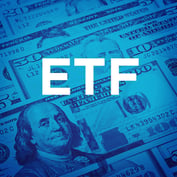Vanguard Group, which quit the world’s biggest climate-finance alliance in December, was the only major ETF provider to post an increase in European assets last year thanks to its lower exposure to environmental, social and governance strategies, according to Morningstar Inc.
The world’s second-largest asset manager is “an outlier in the European context,” Jose Garcia-Zarate, associate director of passive strategies at Morningstar Inc., said in an interview.
An analysis by the market researcher shows that Vanguard was the sole exchange-traded fund provider of the industry’s top five firms to see its European business grow in absolute terms last year, in large part because of “its minimal exposure to ESG in a year when ESG underperformed mainstream investments.”
Vanguard benefited from being more exposed to fossil fuels than its peers, according to Zarate. Morningstar estimates the firm incorporates ESG into about 1% of its European ETFs, compared with roughly 17% of BlackRock’s iShares products. The fact that Vanguard’s ESG business is relatively limited “helped cushion capital losses,” Garcia-Zarate said.
A spokeswoman for Vanguard declined to comment.
Vanguard’s European assets under management grew to €79.6 billion from €79.1 billion. Assets managed by BlackRock’s iShares products slipped to €585.8 billion from €616.9 billion, Morningstar estimates.
“Against very challenging financial market conditions, the European ETF market proved remarkably resilient in 2022,” Morningstar said.
It’s unusual for asset managers operating in Europe to place as little emphasis on ESG as is the case with Vanguard, Garcia-Zarate said. And unlike in the U.S., where bans against ESG investing introduced by the Republican Party have made it harder for firms to pursue the strategy, Europe’s entire regulatory framework is designed to steer the investment industry toward greener, fairer fund allocations.








 January 17, 2023 at 01:27 PM
January 17, 2023 at 01:27 PM












 Copyright © 2024 ALM Global, LLC. All Rights Reserved.
Copyright © 2024 ALM Global, LLC. All Rights Reserved.